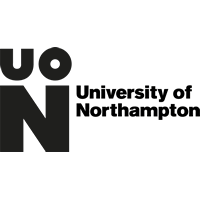
About the course
Course content
This postgraduate qualification allows you to study aspects of cyber security in depth as well as developing your research and analytical skills – whilst undertaking your own individual thesis project investigating an area of particular interest. You will be able to utilise our state of the art facilities – ensuring you are exposed to cutting edge technology and are able to pursue your specialist interests.
Today’s need for Internet security products and services, has led to a demand for people with relevant knowledge and expertise to design, implement and manage secure Internet applications. The MSc in Internet Technology and Security is designed to equip you with the necessary knowledge and skills whilst providing the opportunity to become specialised in a field that is highly sought after.
While primarily having a technological focus, this pathway also provides an awareness of the business context, encourages development of interpersonal skills which can make a vital contribution to problem solving in business.
All modules are 20 credit modules except for the dissertation which is a 60 credit module. An MSc is awarded on successful completion of 180 credits (six 20 credit modules and one 60 credit dissertation module). Not all the designated modules may run or be offered in Stage two due to staff availability or low numbers of students choosing a module.
Course modules (16/17)
-Databases
-Dissertation
-Internet Programming
-Internet Security
-Modern Computer Architecture
-Visual Object Software
-Computer Networks
-Distributed Systems
-Formal Methods for Software Construction
-Immersive Technologies
-Intelligent Systems
-Media Techniques
-Mobile Device Software Development
-Modelling for Serious Games
-Software Engineering
-Specification Analysis and Design
Methods of Learning
Theoretical lectures and seminars are reinforced by practical examples and case studies and using state of the art computer simulation tools and laboratory facilities.
Assessments
Assessment is by coursework, oral presentations, group work, practical reports, critical reviews and all students undertake a substantial independent research dissertation.
Facilities and Special Features
You will have access to approximately 150 PC and Linux workstation computers housed in six bespoke computer laboratories, all with digital projection facilities, and maintained by two technicians. These facilities were brand new, state of the art hardware and furniture for the start of the calendar year 2010 in the newly refurbished Newton building.
Careers
Recent studies show a continuing demand for well trained computing personnel. Successful graduates will have a whole range of possible employment paths in front of them within the broad IT/computing domain.